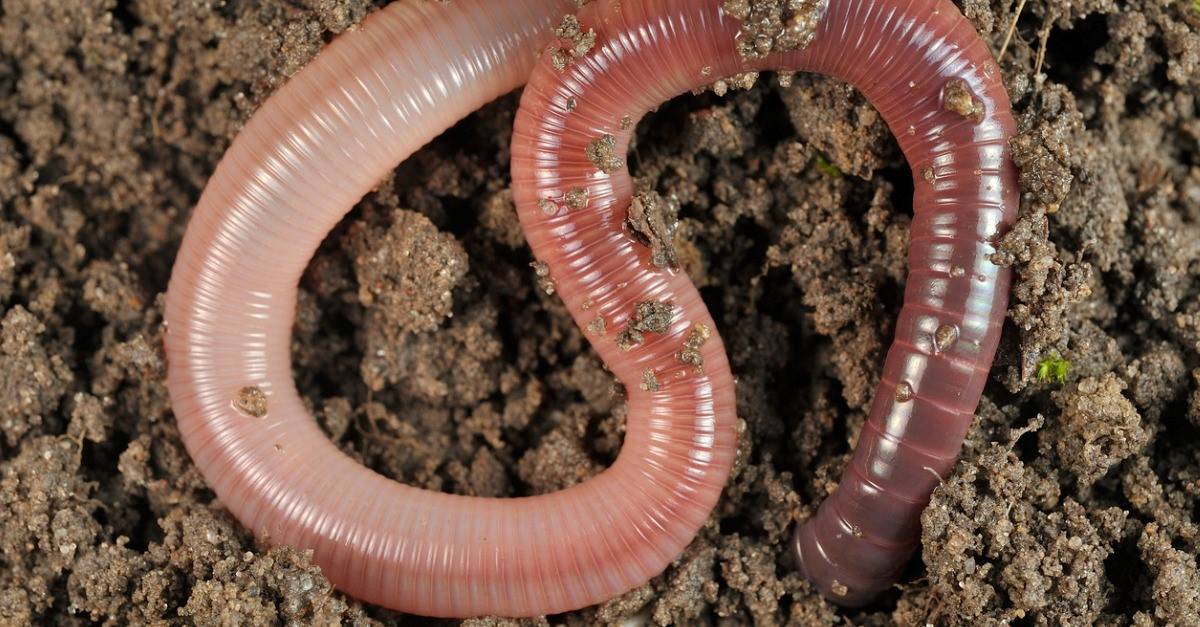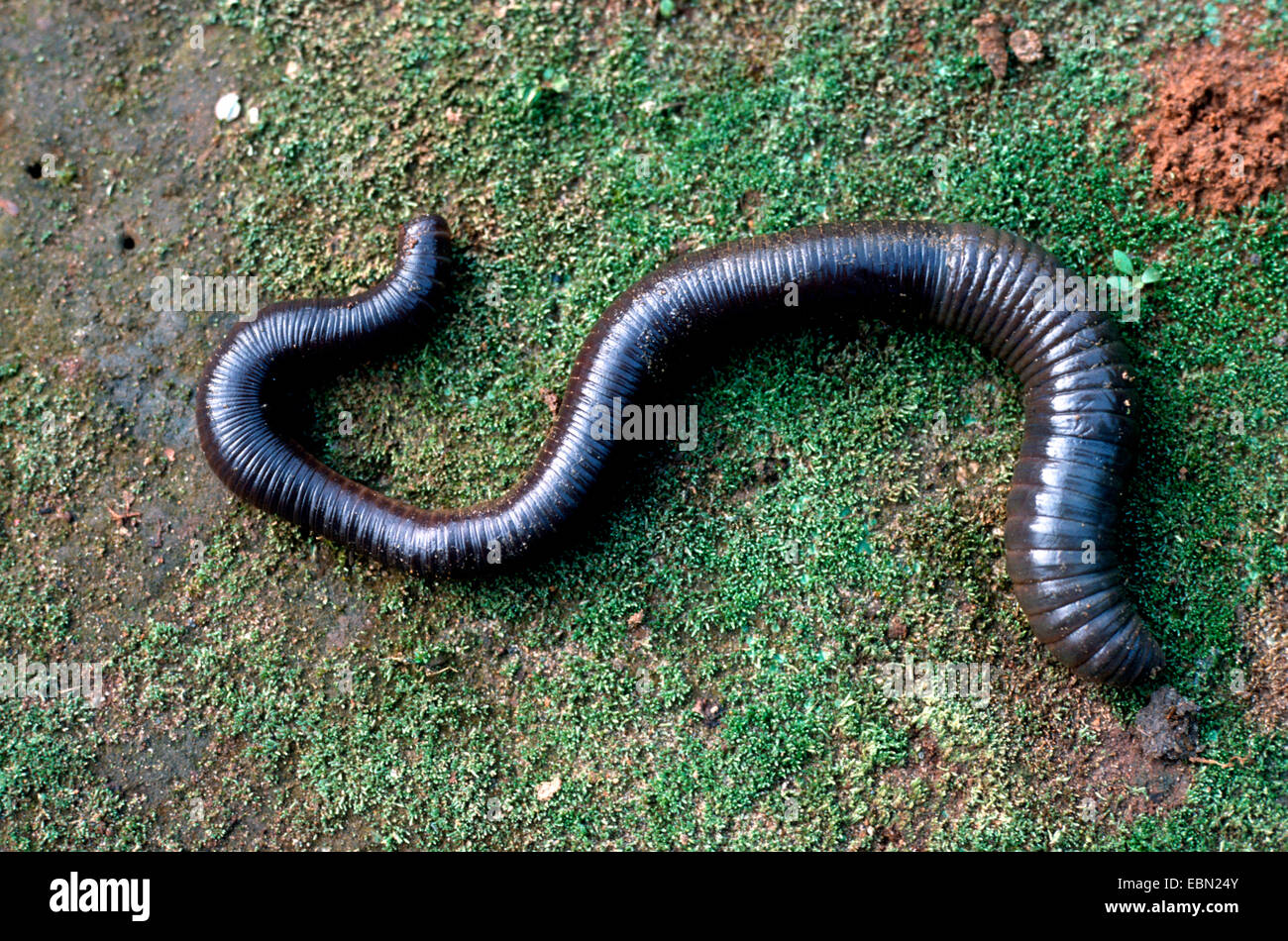Big Worm - The Iconic Character And Fascinating Creatures
You might have heard the name "Big Worm" before, and for many, it brings to mind a certain unforgettable figure from a classic movie. This individual, a key player in the 1995 film *Friday*, left quite an impression on audiences with his particular way of doing business and his rather distinct personality. He was, you know, a central part of the story's tension, representing a kind of pressure that the main characters really had to deal with.
The character, a drug supplier, operated in a way that, in some respects, seemed almost ordinary on the surface. He used what appeared to be a regular job, delivering frozen treats, as a clever front for his less-than-legal activities. This cover allowed him to move about the neighborhood without drawing too much attention, making his presence a constant, low-key threat throughout the film's events.
But the phrase "big worm" doesn't just refer to a person from a movie; it also, surprisingly, points to some truly remarkable creatures found in the natural world. There are, as a matter of fact, real-life worms that can grow to astonishing sizes, far beyond what most people might typically picture. This article will look at both sides of "big worm," exploring the memorable character and the actual, very large earth-dwelling creatures that share a similar, descriptive name.
Table of Contents
- Getting to Know Faizon Love - The Man Behind the Character
- Who Was Big Worm in the Film Friday?
- What Makes Big Worm So Memorable?
- How Did the Confrontation with Big Worm Unfold?
- Beyond the Screen - Are There Really Such Big Worms?
- What Can We Learn from the Idea of "Big Worm"?
Getting to Know Faizon Love - The Man Behind the Character
The person who brought the character of Big Worm to life on screen is an American actor and comedian named Faizon Love. He's someone who has appeared in many films and television programs over the years, making him a rather familiar face in the entertainment world. His portrayal of this particular movie figure is, in fact, one of his most recognized contributions to cinema, pretty much defining how many people think of him.
Born Langston Faizon Santisima, his beginnings were in Santiago de Cuba, Cuba, on June 14, 1968. This means his sun sign is Gemini, for those who keep track of such things. Over his career, he has accumulated a rather impressive list of appearances, participating in more than 80 different movies and TV series. He's quite a busy individual, it seems, with a broad range of roles to his name, showing his versatility in various types of stories.
Beyond his memorable turn as Big Worm, Faizon Love has lent his voice to animated characters, too. For instance, he provided the sound for Sean "Sweet" Johnson in the popular video game *Grand Theft Auto: San Andreas*. This role allowed him to reach a different kind of audience, showing that his talents extend beyond just live-action performances. He truly has, you know, a way of making characters stand out, whether you see him or just hear him.
His work history includes parts in several other well-known films that you might have seen. He was in the holiday favorite *Elf*, the sports comedy *The Replacements*, the family-friendly *Zookeeper*, and even the more recent *The War with Grandpa*. These appearances show a pretty wide range of genres he's worked within, from comedies that make you laugh to stories that pull at your heartstrings. He also had a part in Ice Cube's first time directing a movie, which is a rather interesting piece of trivia about his connections in the film industry.
Personal Details and Career Highlights of Faizon Love
It's always interesting to look at the background of someone who brings such a distinct character to life. Faizon Love's personal and professional path gives us a little more insight into the kind of performer he is. He's someone who has, apparently, made a lasting mark in comedy and acting, often playing roles that are, you know, larger than life or simply very memorable.
| Full Name | Langston Faizon Santisima |
| Known As | Faizon Love |
| Birth Date | June 14, 1968 |
| Birth Place | Santiago de Cuba, Cuba |
| Zodiac Sign | Gemini |
| Notable Role | Big Worm in *Friday* (1995) |
| Other Film Appearances | *Elf*, *Couples Retreat*, *The War with Grandpa*, *The Replacements*, *Zookeeper* |
| Voice Acting | Sean "Sweet" Johnson in *Grand Theft Auto: San Andreas* |
| Number of Roles | Over 80 movies and TV series |
When it comes to the financial side of things, it's been mentioned that Faizon Love received a rather modest payment for his work on *Friday*. He reportedly earned just $2,500 for his part in the film. This figure is, you know, quite a small sum for a role that became so iconic and has been enjoyed by so many people over the years. It really highlights how much things have changed, or perhaps how some actors were paid back then.
There has also been talk about whether he would ever return to play Big Worm again. He has, apparently, expressed that he wasn't particularly keen on revisiting the character. He did suggest, however, that he might consider it for a final payment, but not for what's called "scale," which is a basic minimum rate. This gives you a little peek into the business side of acting and how performers sometimes feel about bringing back old characters, particularly when the initial compensation was, well, a bit on the low side.
Who Was Big Worm in the Film Friday?
In the movie *Friday*, Big Worm stands out as the primary source of trouble for the main characters. He's not just some background figure; he's the one who sets a lot of the story's immediate problems in motion. His presence is felt throughout the day, creating a sense of urgency and danger for Smokey and Craig. He's, you know, basically the person they spend most of their time trying to avoid or appease.
This character is portrayed as a drug dealer, someone who sells illegal substances. What's quite striking about him is his method of operating. He uses his job as an ice cream man, driving a truck around the neighborhood, as a perfect way to hide his true business. It's a pretty clever cover, actually, allowing him to interact with people and move around without raising too many eyebrows. This dual identity makes him a rather unique kind of movie bad guy.
Visually, the film shows Big Worm with curly hair, a detail that helps make him distinct. When he comes to see Smokey for the second time, demanding payment for a debt, his appearance and demeanor really underscore the seriousness of the situation. He's not someone to be trifled with, and his look, combined with his actions, pretty much conveys that message loud and clear. He's, like, a figure you wouldn't want to owe money to.
The debt in question is for $200, which Smokey owes him for some marijuana that was sold. This seemingly small amount becomes a very big problem, driving much of the plot. Big Worm doesn't mince words when it comes to collecting what's due. He makes it quite clear that if he doesn't get his money, both Smokey and Craig Jones will face serious, life-threatening consequences. This threat is, you know, what really pushes the characters into action.
The Troublemaker of the Neighborhood - Big Worm
Big Worm is, in a way, the neighborhood's source of complications. His approach to business is direct and, quite frankly, menacing. He operates with a certain kind of confidence that suggests he's used to getting his way, especially when it comes to money. This makes him a pretty effective antagonist, as his presence alone is enough to make the main characters feel very uncomfortable and worried about what might happen next.
His methods for collecting debts are not subtle. He uses intimidation and clear threats to ensure people understand the gravity of their situation. This is particularly evident in his interactions with Smokey, where he doesn't hesitate to spell out the dire consequences of failing to pay up. He's, like, someone who believes in making his point very, very clear, leaving no room for misunderstanding about what he expects.
The character's dialogue also gives us a peek into his way of thinking. When he says, "Playin' with my money is like playin' with my emotions," it tells you a lot about his priorities and how deeply he connects his feelings to his finances. This line, you know, pretty much sums up his entire attitude towards his business dealings. It suggests that disrespecting his money is a deeply personal offense, something he takes very seriously indeed.
He's also the kind of person who doesn't seem to have much patience for excuses. When he asks Smokey, "How much you got left?" and then follows up with, "You still ain't sold that weed, Smokey?" it shows his immediate disappointment and frustration. His observation that "Niggas are broke these days" is a general comment on the economic situation, but his final statement, "I don't think you're applying yourself, Smokey," is a direct challenge to Smokey's effort, implying a lack of diligence on Smokey's part. It's a pretty classic scene, really, that sets the stage for the conflict.
What Makes Big Worm So Memorable?
Big Worm's lasting impact on popular culture comes from a few different things. For one, he represents a very real kind of street-level threat, yet he's also got this darkly humorous edge to him, which is a hallmark of the film itself. His distinct look, his specific way of speaking, and his rather unusual choice of a day job all combine to create a character that sticks in your mind long after the movie ends. He's, like, a character that just feels very, very real, even in a comedic setting.
His lines are often quoted, becoming a part of everyday conversation for fans of the movie. The way he delivers his threats, with a mix of calm and underlying menace, makes him both frightening and, in a strange way, amusing. This balance is pretty hard to pull off, but the actor, Faizon Love, manages it well, which contributes significantly to the character's enduring popularity. You know, he really makes those words count.
The license plate on his vehicle, which simply says "BIG WORM," is another small but memorable detail that reinforces his identity. It's a subtle touch that, you know, pretty much screams who he is without needing any further explanation. This kind of directness is a part of what makes the character so effective; there's no mystery about his intentions or his presence in the neighborhood.
His role in the film is crucial because he acts as the catalyst for much of the story's action. Without his demands and threats, the main characters wouldn't have the urgent need to come up with money, and the day's events wouldn't unfold in the dramatic way they do. He is, in a way, the engine that drives the plot forward, making him an absolutely central figure to the narrative. He pretty much gets things going, doesn't he?
The Money and the Motives of Big Worm
At the heart of Big Worm's actions is, quite simply, money. His entire motivation seems to revolve around collecting what he believes is owed to him. This focus on finances makes him a rather straightforward, if dangerous, antagonist. He isn't interested in complex schemes or grand plans; he just wants his $200. This simplicity, in a way, makes him even more frightening because his demands are so clear and uncompromising.
His insistence on payment reflects a broader theme of responsibility and consequences within the film. Smokey's failure to sell the marijuana and pay his debt directly leads to the escalating tension with Big Worm. The character's unwavering demand for what's due highlights the idea that actions have repercussions, especially when dealing with someone like him. He's, like, a walking reminder that you have to take care of your business.
The dialogue between Big Worm and Smokey further illustrates this point. When Big Worm says, "I don't think you're applying yourself, Smokey," it's not just a casual remark. It's a statement about work ethic and personal accountability, delivered with a threatening undertone. He's essentially telling Smokey that his lack of effort is directly causing his current predicament, and that's something Big Worm is not willing to tolerate. It's a pretty strong message, you know.
His motives are purely transactional, yet the emotional weight he places on his money adds a layer to his character. The line about playing with his money being like playing with his emotions shows that for him, financial matters are deeply personal. This makes him more than just a generic bad guy; he's someone who feels genuinely wronged when his money isn't respected, which, in a way, makes him a bit more complex than you might first think.
How Did the Confrontation with Big Worm Unfold?
The tension with Big Worm builds throughout the day, leading to a rather dramatic confrontation. After Smokey and Craig fail to get in touch with him and the evening approaches, they head back outside, only to find themselves in a very dangerous situation. This moment is, you know, pretty much the peak of the film's conflict, where everything comes to a head.
They are forced to quickly get away from Big Worm's men, who are sitting in a black van with the headlights off, waiting. This detail of the unlit headlights adds to the sneaky and ominous feeling of the scene, suggesting that they were trying to remain unseen before making their move. It's a classic setup for a sudden, unexpected clash, building up the suspense for what's about to happen.
What follows is a shootout, a sudden burst of gunfire that shatters the relative calm of the neighborhood. This unexpected violence is a stark reminder of the serious nature of Big Worm's business and the lengths he and his crew will go to collect a debt. It's a pretty intense sequence, showing just how much danger Smokey and Craig are truly in. The situation, you know, pretty much spirals out of control very quickly.
The sounds of the gunshots draw the attention of the neighborhood. People come out of their homes, upon hearing the loud noises, curious and concerned about what's happening. This reaction from the neighbors highlights the disruption and fear that Big Worm's presence brings to the community, showing that his activities affect more than just the people directly involved in his dealings. It's a very, very public display of his power.
The Tense Moments and Showdown with Big Worm
The scene where Big Worm's men appear is filled with a palpable sense of unease. The quiet darkness of the van, the unlit headlights, and the sudden appearance of armed individuals create a truly unsettling atmosphere. It's a moment where the characters, and the audience, realize that the situation has moved beyond simple threats to something much more physical and immediate. The tension is, like, almost unbearable.
The shootout itself is a chaotic and frightening event, contrasting sharply with the comedic tone of much of the film. It serves as a harsh reminder that while *Friday* has many funny moments, it also deals with serious and dangerous aspects of street life. This sudden burst of violence makes the consequences of Smokey's debt very, very real, showing that Big Worm is not someone to be taken lightly. It's a pretty

Earthworm Animal Facts - Lumbricina - A-Z Animals

Giant predatory worms from Asia are invading France

Giant Earthworm High Resolution Stock Photography and Images - Alamy